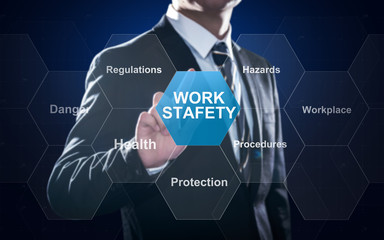


Choosing the right WHS safety consultant is essential for maintaining a safe and compliant workplace.
Workplace Health and Safety (WHS) is a vital part of any organization’s operational success. The well-being of employees, the efficiency of processes, and regulatory compliance all hinge on a company’s ability to maintain safe working environments. To achieve this, many businesses turn to WHS safety consultants for expert guidance and tailored solutions. However, not all consultants are created equal. Here are the key qualities to look for when choosing a WHS safety consultant to ensure you find the right fit for your business.
A top-tier WHS safety consultant must have a deep understanding of the laws and regulations that govern workplace health and safety in your industry and location. Compliance with these regulations is critical to avoid fines, legal penalties, and potential shutdowns.
Look for a consultant who stays up-to-date on changing WHS legislation and understands the specific requirements for your industry. They should be able to advise on both national and local safety regulations and have experience conducting safety audits to ensure that your business complies with all relevant standards.
While general WHS knowledge is essential, industry-specific expertise is invaluable. Different industries, such as construction, manufacturing, healthcare, and retail, have unique safety challenges. The right consultant will have relevant experience in your field, allowing them to understand the specific hazards your employees face and to offer tailored solutions.
For example, a consultant who has worked extensively in the construction sector will be familiar with fall protection, scaffolding safety, and heavy equipment hazards, while one with healthcare experience will be better suited to addressing issues like biohazard exposure and ergonomic risks.
Effective communication is crucial for any consultant, especially in WHS, where explaining complex safety protocols and compliance issues is a key part of the job. A good WHS safety consultant should be able to translate technical safety terms into easy-to-understand language, making it clear what needs to be done and why.
Additionally, they should be skilled at listening and understanding your specific concerns. Whether speaking to upper management or frontline workers, a consultant must be able to clearly convey safety concepts and encourage employee participation in safety initiatives.
In the world of workplace safety, small oversights can lead to significant risks. A consultant who has a keen eye for detail will be able to spot potential hazards that others might miss, whether it’s a misplaced fire extinguisher or an incorrectly labeled chemical.
Attention to detail is also important when conducting risk assessments, creating safety plans, and preparing documentation for regulatory compliance. A WHS consultant who is thorough in their assessments will help ensure that no aspect of workplace safety is overlooked.
Workplace safety often involves complex problems that require innovative solutions. A good WHS consultant is not just there to point out issues—they must also offer actionable and effective recommendations to resolve them. This requires creative thinking and a deep understanding of both the business environment and WHS principles.
A strong problem-solving consultant can customize solutions to fit your business’s specific needs, budget, and operational constraints. They should be able to develop strategies that improve safety without disrupting productivity.
Part of the consultant’s role is to empower your workforce with the knowledge and tools they need to maintain a safe working environment. Whether it’s conducting safety training sessions, leading workshops, or mentoring staff, a good WHS consultant should be an effective trainer.
Look for someone who has experience in delivering engaging and practical safety training that employees can apply in their day-to-day tasks. Strong coaching skills help to foster a safety culture within the organization, ensuring that employees understand and prioritize WHS principles even after the consultant’s work is done.
Finally, always consider a consultant’s reputation in the industry. Seek out testimonials, reviews, or case studies from their previous clients to get an idea of the results they’ve achieved. A consultant with a solid track record will be happy to provide references and demonstrate how their work has benefited other organizations.
Choosing the right WHS safety consultant is a crucial decision that can significantly impact your organization’s safety performance and compliance. By prioritizing qualities such as strong knowledge of regulations, industry expertise, communication skills, attention to detail, problem-solving ability, training proficiency, and a solid reputation, you can ensure that your business partners with a consultant who will effectively improve workplace safety and support long-term success.
